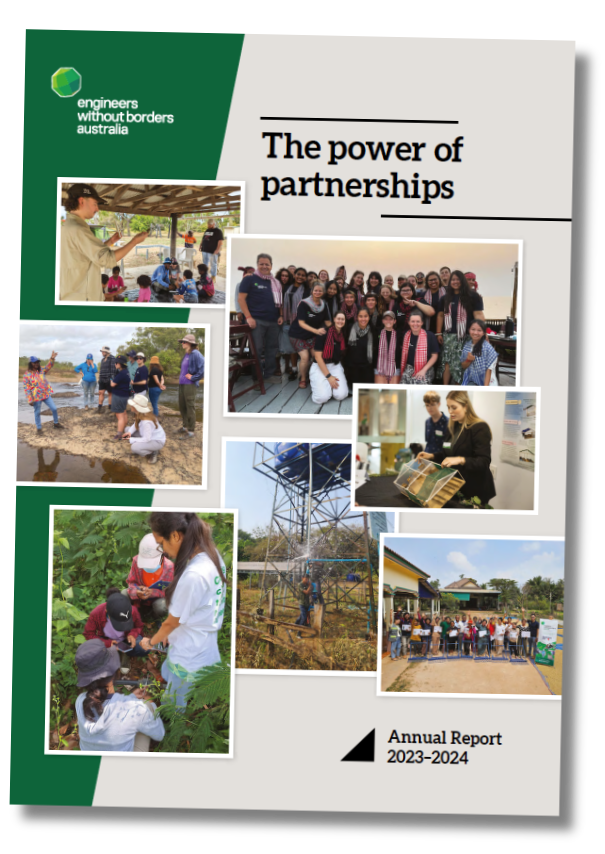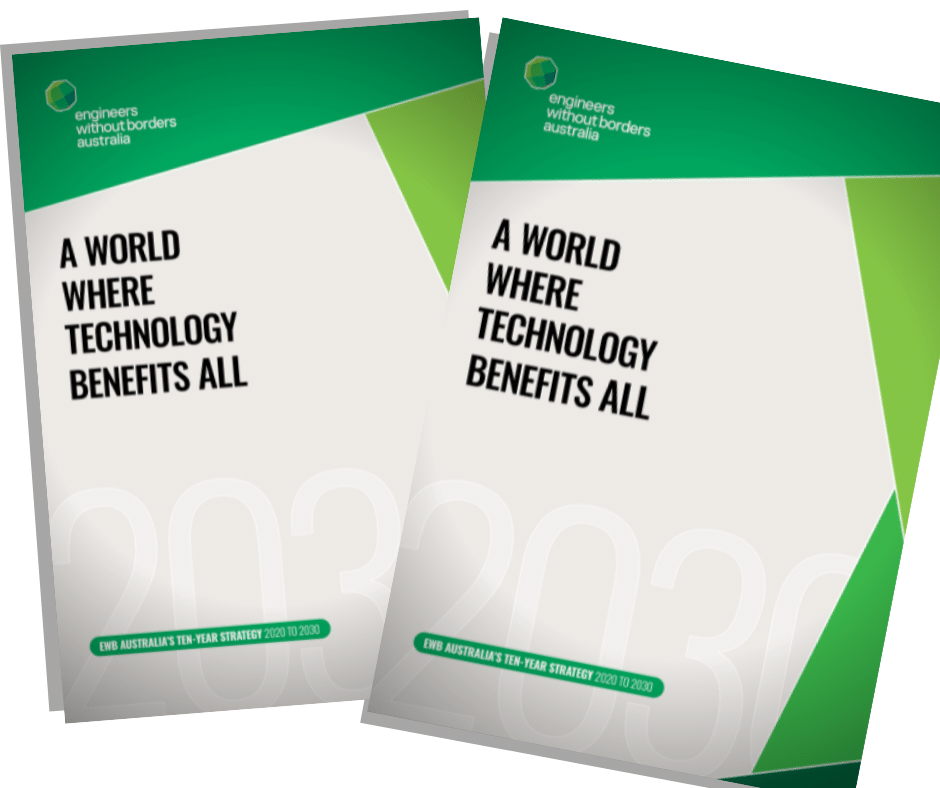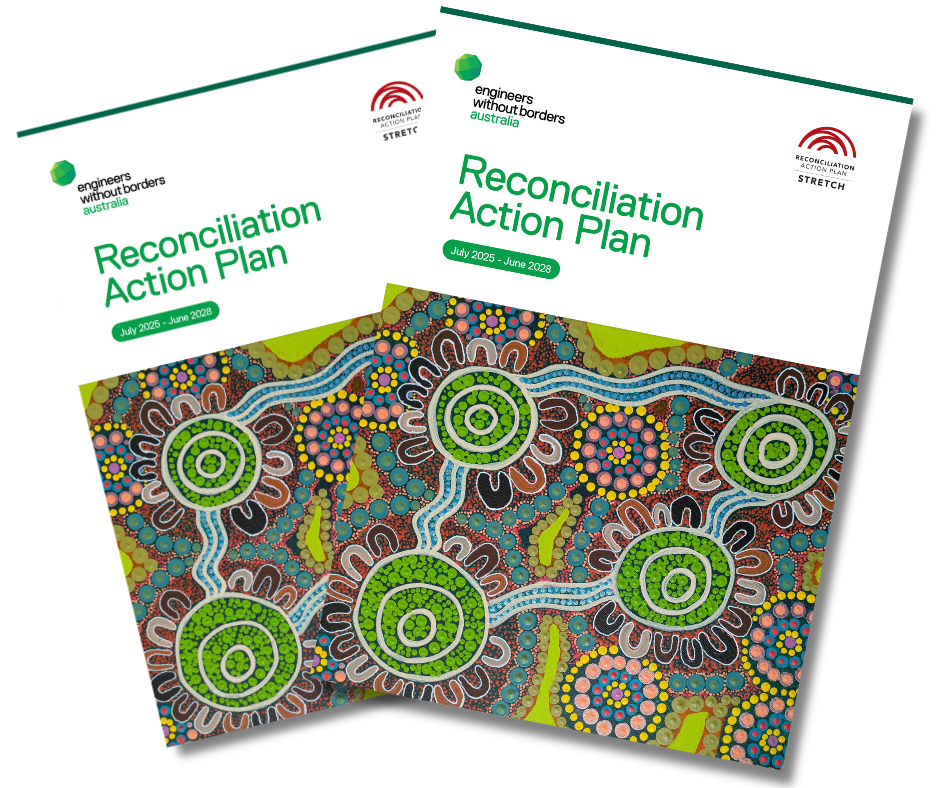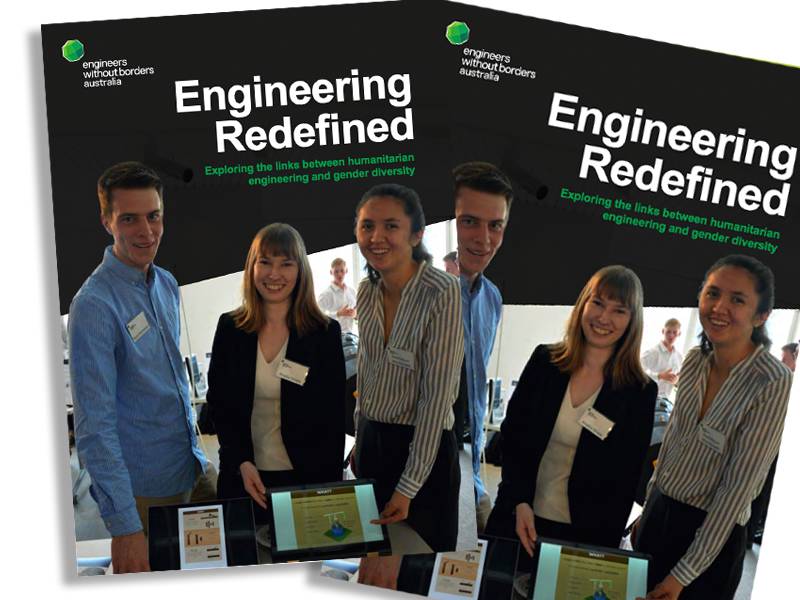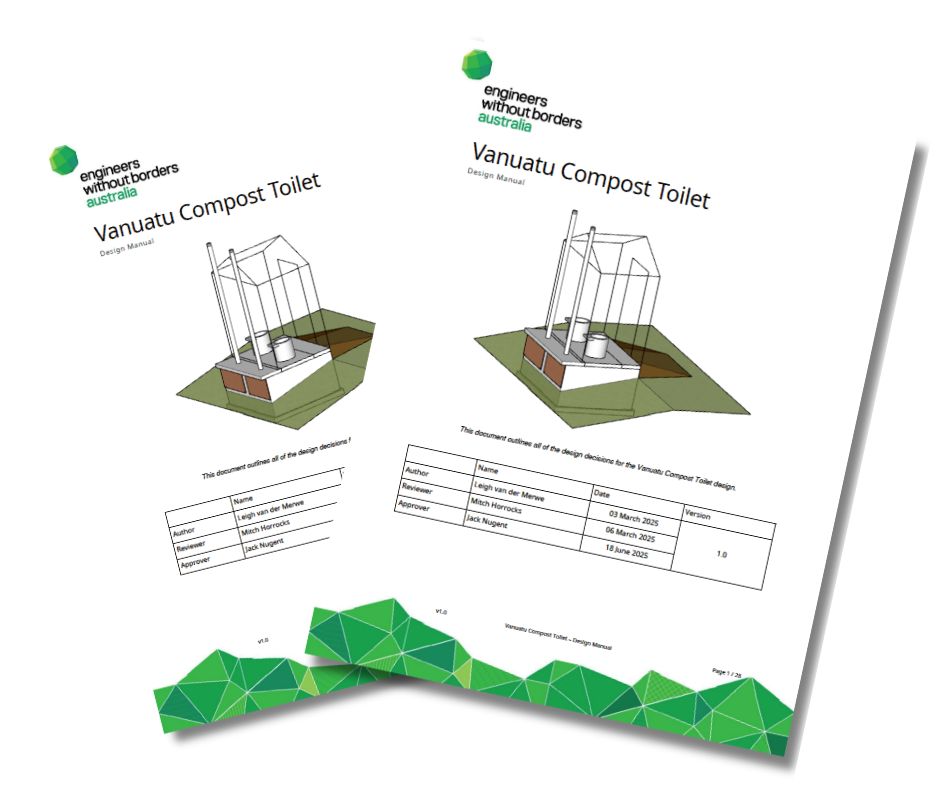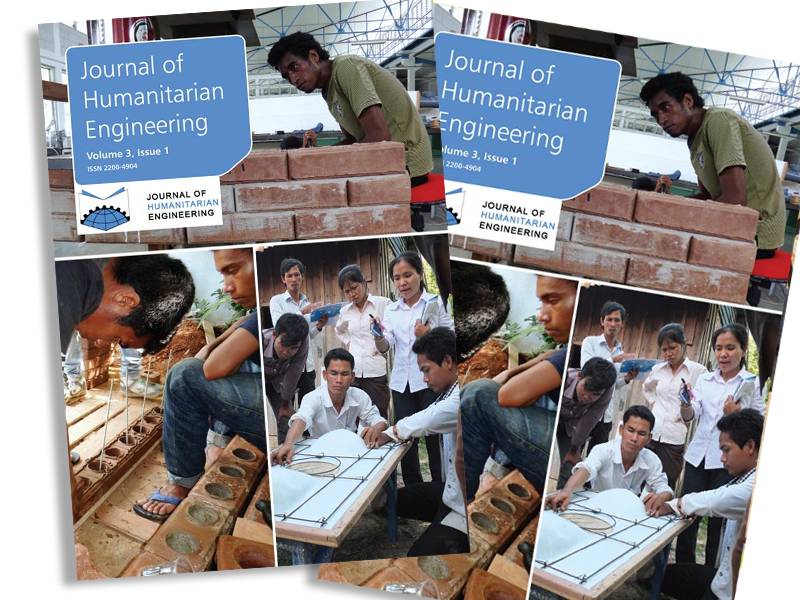Publications
EWB produces a range of publications to showcase the impact of our work and report it to our community.Annual Reports
Publications
EWB 2020-2030 Strategy
Our aim is that by 2030 more than 1,000,000 people will have equitable access to technology to live well and pursue their aspirations sustainably, as a clear result of our work. Our ten-year strategy from 2020-2030 outlines our plan to achieve this.
Stretch RAP
EWB’s Stretch RAP 2025-28 builds on our work with Aboriginal and Torres Strait Islander communities and organisations, bringing consciousness reconciliation in all action and across every part of EWB.
Redefining Engineering
Exploring the links between human-centred engineering and gender diversity. Understanding the most prevalent motivators for engineers to participate in humanitarian work.
The Sanitation in Challenging Environments Program in Cambodia
The program’s history and evolution from the perspective of EWB Australia’s field professionals and staff from 2008 – 2022. This document was compiled as part of a PhD project by Leandra Rhodes-Dicker at RMIT University in
collaboration with EWB Australia.
Impact
Shares the influence and impact of our work.
Education Edition – 2016
Design for Communities Edition – 2016
Autumn 2015
UN Environment Programme Perspectives
Issue No. 43: Solutions to social and environmental impacts of disposal diaper waste in Vanuatu
Household Compost Toilet Manual
Journal of Humanitarian Engineering
Humanitarian engineering is about applying and developing technology to address a real human need. It is about serving disadvantaged communities or groups, often overlooked by traditional engineering journals.
Join our mailing list
Subscribe to receive EWB’s newsletter “The Changemakers”, as well as upcoming events, volunteer assignments and career opportunities.


